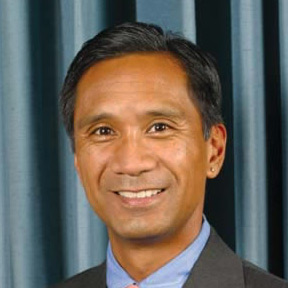Critics of the recent Supreme Court decision giving non-Americans captured and held abroad as suspected terrorists the right to challenge their detention in U.S. courts have raised concerns that more Americans will be put at risk.
As a Wall Street Journal editorial put it: “We can say with confident horror that more Americans are likely to die as a result.”
The truth is we are long overdue for a thorough reexamination of our homeland security policy. And the court’s decision in Boumediene v. Bush may finally force such a tough review.
The idea that the United States can create an impenetrable barrier against all terrorist threats, in all places, at all times, drives U.S. policy. But it is a delusional fiction—and costs U.S. taxpayers huge amounts of money, threatens precious freedoms and undermines real security by treating all threats as equal.
In fact, some threats are greater than others. Some “targets” are more valuable or vulnerable than others. And some risk is inevitable. We need to accept these facts and move forward—recalibrating homeland security philosophy to embrace resiliency, rather than impregnability.
The 2007 National Strategy for Homeland Security sets forth the following major goals: prevent and disrupt terrorist attacks; protect the American people, critical infrastructure and key resources; and respond to and recover from incidents that occur.
Because the Department of Homeland Security (DHS) was created in response to the traumatic effects of the 9/11 terrorist attacks there is a tendency to think primarily—almost exclusively—in terms of preventing and protecting against future attacks. As a result, homeland security has focused primarily on “three Gs”: guns, gates, and guards.
If government could guarantee that it has a fail-safe way of preventing future terrorist attacks, we wouldn’t have to worry about response and recovery. But it’s impossible to prevent every possible attack or protect every potential target.
This reality was effectively driven home by a spokesman for the Irish Republican Army after an October 1984 bombing in Brighton, England, where Prime Minister Margaret Thatcher narrowly escaped being killed: “We only have to be lucky once; you will have to be lucky always.” In other words, perfect security is impossible and trying to attain perfect security is a quixotic quest.
This is especially true when faced by a determined terrorist adversary willing to keep trying until successful and relatively unconcerned about sustaining losses in the process (a phenomena borne out by the perseverance of al Qaeda in Iraq).
So we have to be willing to accept risk.
Although there has been much talk about using risk to prioritize homeland security decisions, that’s largely what it’s been: talk. Annual DHS spending has increased nearly 40 percent since the department was created in 2003, but roughly the same percentage of the budget is allocated to each DHS operating agency every year—implying that risk has little to do with DHS priority-setting or spending decisions.
One way to come to grips with risk is to use the concept of resiliency—“the ability to recover readily from misfortune”—as a guiding principle. In effect, we have to reverse how we think about homeland security and work the problem backwards—using resiliency to redefine what and how we choose to prevent and protect.
Instead of trying to prevent every conceivable attack against every possible target, we would focus our resources on preventing those attacks against which we are not resilient. For example, instead of trying to protect every rapid transit car and every “metro” station in major cities like Boston, Chicago, Cleveland, Philadelphia, Washington and New York, an impossible task, we would focus on protecting critical elements of the transit systems, which would give us the resiliency to keep them operating in the event of an attack.
In addition to helping us better understand and accept risk, resiliency would offer another—perhaps more important—benefit.
If “guns, gates, and guards” no longer define our homeland security philosophy, we will be less likely to propose and implement draconian measures in the name of prevention and protection that infringe upon or erode civil liberties. The ability to recover from this type of misfortune—the erosion of precious freedoms—could take decades, if not a lifetime.







